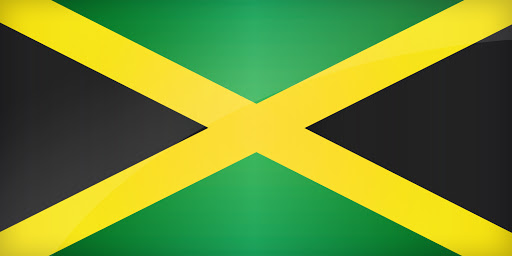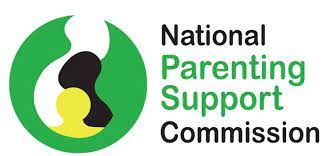Safety and Emotional Wellbeing
Coronavirus disease (COVID-19) is an infectious disease caused by a newly discovered coronavirus. On the 10th March 2020, Jamaica confirmed its first case of COVID-19. The Government of Jamaica mounted an intense prevention and control programme for the outbreak. World Health Organization (WHO)
The outbreak has been stressful for many people due to the major disruptions caused. People are unable to gather with friends and must adhere to restrictions for the safety of themselves, children and others. It is important to take care of your mental health by finding a strong support system that works.
The World Health Organisation (WHO) suggests “If COVID-19 is spreading in your community, stay safe by taking some simple precautions, such as physical distancing, wearing a mask, keeping rooms well ventilated, avoiding crowds, cleaning your hands, and coughing into a bent elbow or tissue.”
Talking to your children about COVID-19
Jamaican children, like children all over the world. have encountered many traumatic experiences since 2020, with significant changes and life events such as disruptions in schooling and education, isolation, as well as possible illness and death of loved ones.
Your child might feel stressed about the number of restrictions in place, especially when he or she is unable to meet or play with friends in a physical space. It is important to ask your child how they are feeling about the pandemic and ask what you can do to make them feel better.
Tips for everyone:
- Connect with others and your community
- Practice Hand Hygiene - regular hand washing with soap, or use hand sanitisers
- Practice Respiratory Hygiene - cough or sneeze into your elbow; wear a mask
- Practice Social/Physical Distancing - stay at least 6 feet away from other people
- Cleaning and Disinfection of appliances and equipment
- General Sanitation and Hygiene
- Risk Communication, training and Education
- Stay in well ventilated rooms where possible
- Avoid crowded public transportation
- Take breaks from news stories
- Exercise and eat well balanced meals
Keeping Yourself and Children Safe
Parents, it is your responsibility to keep your children safe, especially during these times with the prevalence of the Corona-virus disease. Ensure that as you teach your child good hygienic practices that you also are adhering to protocols in place.
- wear his or her mask properly – covering nose and mouth
- wash their hands frequently and properly with soap and water
- Cleanse hands with 60 – 70 % alcohol-based hand sanitizer when soap and water are not available
- practice social distancing and explain why this is important
- Cover nose and mouth during sneezing and coughing with a mask, hand towel, or flexed elbow and perform hand hygiene immediately after.
- share how they are feeling – do they have difficulty breathing or have a fever or cough?
- Clean hands with soap and water. Hands must be thoroughly washed for no less than 20 seconds.
- Avoid close contact with anyone with cold or flu-like symptoms.
- Avoid unprotected contact with sick people
COVID 19 parenting tips
- Reassure your child about safety measures in place to prevent the spread of Covid-19
- Recognise and address your child’s fears;
- Talk with your child about any news they might hear
- Keep in touch with loved ones, especially grandparents, other relatives and friends
- Nurture your child – hug your child and tell him or her that you love them
Activities for parents to do with children at home
Being unable to interact with others in a physical space can be challenging for many as we face the Covid-19 pandemic. However, as a parent, there are many activities that can be done with your children at home to keep them occupied.
- Playing a fun game together
- Cooking a meal together
- Creating a ‘What I am thankful for?’ jar
- Family Games/Movie Night
- Parent-child movie night
- Backyard Sports Day
- Card games
- Board games
- Karaoke
- Treasure hunt
- Cooking activities
- Reading Day
- Video games
- Painting
- Art and Craft (NPSC)
What to do if a Parent has COVID-19
- The ill person should stay in a separate room. If this is not possible, then keep at least a 1-metre distance from them.
- The sick person and anyone else in the same room should wear a medical mask.
- Provide good ventilation in the room of the ill person and shared spaces, and open windows if possible and safe to do so.
- Visitors should not be allowed in the home.
- Limit the number of caregivers to one person with no underlying conditions, if possible
- The ill person should have dedicated dishes, cups, eating utensils, towels, and bed linens. They should be washed with soap and water, and not shared.
- Frequently touched surfaces by the ill person should be cleaned and disinfected at least daily.
- Everyone in the household should wash their hands with soap and water regularly, especially:
- after coughing or sneezing
- before during and after preparing food
- before eating
- after using the toilet
- before and after caring for the ill person
- when hands are visibly dirt
- The waste from the ill person should be packed in strong closed bags before disposal.
- Those with symptoms should stay isolated for a minimum of 10 days after the first day they developed symptoms, plus another 3 days after the end of symptoms – when they are without fever and without respiratory symptoms.
- People without symptoms should stay isolated for a minimum of 10 days after testing positive.



